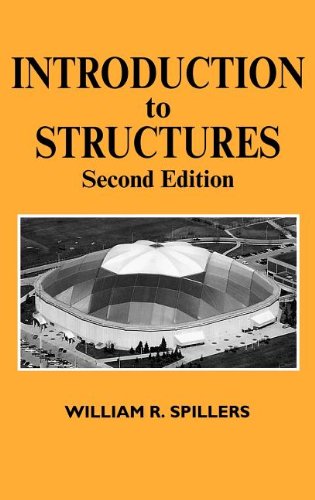

Most ebook files are in PDF format, so you can easily read them using various software such as Foxit Reader or directly on the Google Chrome browser.
Some ebook files are released by publishers in other formats such as .awz, .mobi, .epub, .fb2, etc. You may need to install specific software to read these formats on mobile/PC, such as Calibre.
Please read the tutorial at this link. https://ebooknice.com/page/post?id=faq
We offer FREE conversion to the popular formats you request; however, this may take some time. Therefore, right after payment, please email us, and we will try to provide the service as quickly as possible.
For some exceptional file formats or broken links (if any), please refrain from opening any disputes. Instead, email us first, and we will try to assist within a maximum of 6 hours.
EbookNice Team

Status:
Available4.7
33 reviews
ISBN 10: 1898563942
ISBN 13: 9781898563945
Author: William R Spillers
This book focuses on the changes made in building science and practice by the advent of computers. It explains many more tools now available in the contemporary engineering environment. The book discusses the more commonly used topics of structural failure, cable-nets and fabric structures, and topics of non-linear analysis. Problems with solutions are provided.
Focusses on the changes made in building science and practice by the advent of computers
Discusses structural failure, cable-nets and fabric structures, and topics of non-linear analysis
Chapters discuss statically determinate and indeterminate structures, deflections of structures and provides solutions to problem
Chapter 1. Introduction and Review
1.1 MODELING
1.2 NOTATION
1.3 RIGID BODY MECHANICS
1.4 THE CONCEPT OF STRESS RESULTANTS
1.5 EXERCISES
Chapter 2. Statically Determinate Structures
2.1 INTRODUCTION
2.2 STATICALLY DETERMINATE TRUSSES
2.3 FRAMES
2.4 MEMBRANE SHELLS
2.5 EXERCISES
Chapter 3. Deflection of Structures
3.1 VIRTUAL WORK FOR TRUSSES
3.2 Virtual Work for Plane Frames
3.3 MORE GENERAL APPLICATIONS
3.4 COMPUTATION OF DISCONTINUITIES
3.5 REAL STRUCTURES versus VIRTUAL STRUCTURES
3.6 EXERCISES
Chapter 4. Statically indeterminate structures
4.1 THE FORCE METHOD
4.2 THE DISPLACEMENT METHOD
4.3 EXERCISES
Chapter 5. Plastic analysis
5.1 INTRODUCTION
5.2 THE CONCEPT OF A PLASTIC HINGE
5.3 PROPORTIONAL LOADING
5.4 MOMENT REDISTRIBUTION
5.5 ANALYSIS THEOREMS
5.6 Computing Plastic Collapse Loads
5.7 EXTENSIONS
5.8 EXERCISES
Chapter 6. Uses of cables
6.1 PLANE CABLES
6.2 BEAMS WITH CABLES
6.3 A STATICALLY DETERMINATE SUSPENSION BRIDGE
6.4 A SIMPLE EXAMPLE OF AN AIR-SUPPORTED STRUCTURE
6.5 CABLES IN THREE DIMENSIONS
6.6 EXERCISES
Chapter 7. Moment distribution
7.1 MEMBER STIFFNESS AND JOINT DISTRIBUTION FACTORS
7.2 FRAME PROBLEMS AND SIDESWAY
7.3 GENERALIZATIONS AND EXTENSIONS
7.4 EXERCISES
Chapter 8. Influence lines and their application
8.1 THE MUELLER-BRESLAU PRINCIPLE
8.2 AN EXAMPLE FROM BUILDING DESIGN
8.3 MOVING LOADS
8.4 PLACING MOVING LOADS FOR MAXIMUM MOMENT
8.5 EXERCISES
Tags: William R Spillers, Structures, Introduction